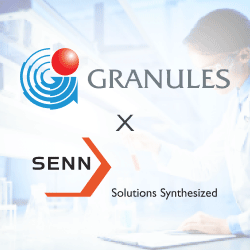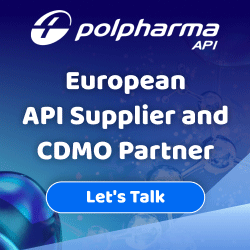Overview of sterile liquid drug products & CDMOs, CMOs offering aseptic fill finish & other contract services for complex drug products.
Q1. What are sterile liquid formulations and what are the benefits?
Sterile liquid drug products are liquid dosage forms of therapeutic agents that are free from viable microorganisms. All sterile products including sterile liquid formulations must pass a sterility test. Sterile products refer to any specialized dosage form of a drug, including but not limited to, parenterals, injectables, surgical irrigants, and ophthalmics, devoid of viable microorganisms.
Sterile dosage forms are specialized dosage forms largely because of seven primary characteristics including safety, sterility, being free from pyrogenic contamination and visible particulate matter, stability, compatibility, and isotonicity.
Sterile drug product manufacturing thus requires dedicated and specialized capabilities which are in compliance with the FDA aseptic guidance and EMA regulatory requirements. From the perspective of a regulator, the concerns for safety and effectiveness of the product are paramount.
Every sterile dosage form undergoes sterilization. Sterilization is a process of removing objectionable microorganisms and controlling microbial populations. It is usually the final stage in the preparation of sterile products. Sterilized drug formulations are available in the form of parenteral sterile solutions, sterile suspensions, sterile emulsions, sterile powders, etc.
Oral liquids are non-sterile liquid drug products, whereas liquids administered by the parenteral route are sterile. Many sterile liquid drug products are available commercially and can be classified according to their volume, use, and physical state.
Some Benefits of Sterile liquid Formulations
- Specialized dosage forms which have copious benefits such as quick onset of action.
- Suitable for drugs which cannot be administered via the oral route of administration.
- The duration of action of a sterile liquid preparation can be prolonged by modifying the formulation.
- They make suitable preparations for drugs which are inactivated in the gastrointestinal tract and for nutritives like glucose and electrolytes.
Various contract development manufacturing organizations (CDMOs), contract research organizations (CROs) and contract manufacturing organizations (CMOs) offer pharmaceutical outsourcing services for the formulation development and manufacturing of sterile liquids.
Q2. What are the different types of sterile liquid dosage forms?
Sterile liquid dosage forms are available as parenteral drug products, ophthalmic solutions and nasal solutions among other preparations. These sterile liquid formulations are explored in detail below.
- Parenteral Drug Products
While oral, buccal, sublingual, and rectal comprise the enteral routes of administration, any other route is considered a parenteral administration site. Parenteral drug products are also called injectable formulations and are used for intravenous, subcutaneous, intramuscular, and intra-articular administration of drugs. The drug is stored as a liquid or if unstable, a lyophilized form.
Parenteral preparations include injections, transfusion fluids, sterile suspensions, sterile solids, parenteral sterile solutions and sterile emulsions. Parenteral drug products that are in the form of a liquid require a base to dissolve its contents.
Water for injection is the most commonly used vehicle for parenteral preparations. Besides highly purified water, bacteriostatic water, or sterile water for injection, non-aqueous bases like oil may be used as a base for parenteral liquids.
- Ophthalmic Solutions
In medical terms ophthalmic means pertaining to the eye. Ophthalmic preparations could be liquids such as eye drops, eye suspensions, and eye solutions or semi-solid products such as eye lotions, eye ointments, etc.
Ophthalmic solutions are sterile, aqueous solutions used for, among other things, cleansing and rinsing eyeballs. They may contain excipients, which regulate osmotic pressure, the pH, and viscosity of the preparation.
Liquid ophthalmic products are thus used to treat eye infections. Given the route of administration – into the human eye – it is important that the product is developed in such a way that it is efficacious and that it is manufactured and sterilized so that it is free from microbial contamination.
- Nasal Solutions
Nasal solutions are sterilized dosage forms that are used for treating ailments in the nasal passage. They may be used for treating nose infections, dryness on the inside of the nose and various other nasal issues. The anatomy and physiology of the nasal cavity provide unique advantages for accessing targets for local, systemic, and potentially central nervous system drug delivery.
Nasal solutions are designed to be delivered to the anterior part of the nasal cavity for better absorption and retention. Nasal preparations are usually in the form of aqueous solutions as they are simple to develop and are commonly packaged in plastic bottles or glass containers fitted with a pump spray or dropper.
A contract development manufacturing organization (CDMO), contract research organization (CRO) or a contract manufacturing organization (CMO) which has capabilities for the aseptic manufacturing and sterile fill finish of liquid dosage forms may offer pharmaceutical outsourcing of formulation development and manufacturing services for the above-mentioned formulations. Such organizations offering aseptic fill finish services for liquids may be referred to as a CMO or CDMO for sterile liquid formulations.
Q3. What are the challenges involved in aseptic processing and fill-finish services?
Aseptic production is the aseptic filling of a commercially sterile product into sterilized containers followed by hermetic sealing, with a sterilized closure, in an environment free from microorganisms.
Sterile fill finish is the final manufacturing step in the overall sterile drug product manufacturing process. Aseptic fill finish is the area where a sterile drug is transferred from an aseptic filling needle to a sterile container, usually a vial or pre-filled syringe.
Aseptic production and sterile fill finish of complex drug products comes with its own share of challenges. Some of the challenges associated with aseptic manufacturing and fill-finish services are explored in detail below.
- The first challenge in aseptic manufacturing is the facility in which the product is to be produced. The facility must be constructed in such a way as to minimise occluded surfaces, be well ventilated using High Efficiency Particulate Air filters (HEPA) and be easily cleaned, maintained and decontaminated.
- Another key challenge is implementing aseptic production technologies and practices that meet multiple regulatory expectations. Companies such as CDMOs and CMOs which offer sterile fill finish must meet the compliance expectations of many regulatory authorities.
- Aseptic filling of injectable drugs is one of the most critical sterile drug product manufacturing processes as it presents a significant risk for the patient in case of bacterial contamination. Therefore, a series of constraints are imposed on manufacturers, leading to a very complex process requiring intensive validation, training and care during operation.
- Fill-finish manufacturing demands scalability and flexibility, especially for small batches of specialized therapies. Small batch manufacturing does not run efficiently and cost-effectively on conventional, larger production lines, therefore necessitating scalable, lyophilization platforms where the product can be manufactured under sterile, GMP compliant conditions.
- Aseptic fill and finish requires capital investment in expensive washing and sterilization equipment, and analytical capabilities to assure compliance to published standards, along with highly trained personnel required to implement, maintain, and audit processes and procedures to assure compliance.
- Failures during the aseptic fill and finish stage that introduce microbial contamination and create issues with formulation dosing can lead to the loss of valuable products, production delays and potential health risks to patients.
Full-service CDMOs (contract development manufacturing organizations) and CMOs (contract manufacturing organizations), and contract research organizations (CROs) which have extensive experience and expertise in aseptic processing and fill-finish can handle the challenges associated with these processes.
A full-service CDMO for sterile liquid formulations with sterile fill finish capabilities enable the pharmaceutical outsourcing of custom fill and finish services and the formulation development and manufacturing of liquid sterile drug products.
Q4. What are the considerations for aseptic processing and sterile fill-finish?
Aseptic fill finish services involve complex processes which pose various challenges. Aseptic finish services for parenteral drug manufacturing consists of a lot of single working steps. But the whole process is only as good as the worst single step.
To achieve the aim of a sterile product, several aspects have to be considered and have to be separately validated by in-house manufacturers or outsourcing facilities offering aseptic fill finish services.
The main factors that must be considered from the outset for parenteral drug development and manufacturing include sterile filtration, the product’s chemical and physical stability under various stress conditions during product manufacturing, storage and shipping, compatibility with the materials used during sterile fill finish processing, etc
Any personnel involved in the aseptic manufacturing of drugs or devices should undergo extensive training in aseptic processes, cleanroom best practices, proper gowning and protection, personal hygiene, and specific operating procedures of the facility.
Furthermore, the production of sterile preparations should be carried out in clean areas, entry to which should be through airlocks for personnel or for equipment and materials. Clean areas should be maintained to an appropriate standard of cleanliness and supplied with air that has passed through filters of the required efficiency.
Before equipment or packaging can enter a cleanroom, it must be sterilized. Systems used to sterilize equipment must be chosen carefully, because each approach will have a different impact on different formulations and packaging materials and on various types of contaminants that may be present on equipment and tools used in a fill–finish process.
In the end, process simulation with media fill is the key validation measure and allows the final evaluation of the appropriateness of the entire process. Process validation includes checks on the process by means of process simulation tests using microbial growth media.
Q5. Which are the leading pharmaceutical CDMOs offering sterile liquid dosage forms?
A full-service CDMO for sterile liquid formulations having sterile fill finish capabilities can offer parenteral drug development and manufacturing, custom fill and finish services including GMP filling services, aseptic fill finish services, sterile fill-finish services for complex drug products, etc. Leading CMOs and CDMOs offering custom fill and finish services for sterile liquid clinical and commercial drug products are noted below.
Oncomed Manufacturing A.S - Aseptic Fill Finish Services for Sterile Liquid Formulations
Oncomed has sterile fill finish capabilities and functions as a CDMO for sterile liquid formulations along with freeze dried dosage forms. As a specialized CDMO they have expertise in the sterile processing and aseptic fill and finish of complex drug products. Oncomed also provides contract manufacturing services for cytostatic and cytotoxic drug products.
Oncomed is specialized in aseptic processing and offers oncological injectable clinical and commercial drug products. It also provides sterile fill-finish services for complex drug products and cytotoxic drug products.
GRAM Laboratory Inc - Sterile Liquids
Gram Laboratory’s scientific staff has expertise encompassing the development of a variety of dosage forms including sterile liquids, parenteral sterile solutions, powders, emulsions and suspensions, tablets, capsules, oral liquids (non-sterile liquid drug products), ophthalmics, lyophilized powders, topical semi-solid products, etc.
Bahrain Pharma - CDMO for Sterile Liquid Formulation Development
Bahrain Pharma’s sterile manufacturing facility is at the design stage and will offer aseptic finish services for parenteral drug manufacturing, GMP filling services, sterile liquid filled vials (vial fill finish), lyophilized vials, oral suspension powders, and injectable liquids. It will also provide sterile emulsion technology, pre-filled syringes, sterile fill-finish services for complex drug products, and vial fill finish services.
Cook Pharmica LLC. - Liquid Formulation Development
The formulation scientists at Cook Pharmica have great experience in a variety of formulations and product presentations. For products that need the added stability of lyophilization, the required lyophilization cycles can be optimized through the use of a LyoStar II™ development lyophilizer.
Cook Pharmica’s parenteral drug development and manufacturing area includes a high-speed syringe filling line that can offer GMP filling services, aseptic finish services for parenteral drug manufacturing and meet an annual capacity of 70 million pre-filled syringes.
Sofarimex - Contract Manufacturing Services for Sterile Liquid Drug Products
Sofarimex is one of the leading companies offering contract manufacturing services for pharmaceutical products in Portugal. Its factory has a large productive flexibility, producing several clinical and commercial drug products like solids, liquids, semi-solid products , topicals, sterile and non-sterile liquid drug products.
All Suppliers












 Ethypharm is an international Pharma company with European roots manufacturing and commercializing essential drugs all over the world.
Ethypharm is an international Pharma company with European roots manufacturing and commercializing essential drugs all over the world.








